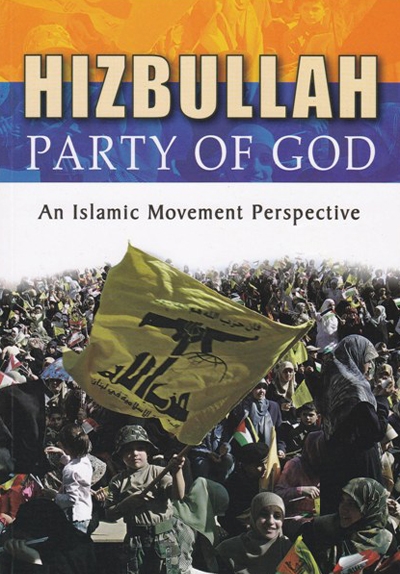Hizbullah, Party of God: An Islamic Movement Perspective

Author(s): Abdar Rahman Koya
Publisher: The Other Press
Published on: Rajab, 1427 2006-08
ISBN: 983-9541-48-X (pbk.)
No. of Pages: xix + 142
Editor's Note
by Abdar Rahman Koya
When a Danish newspaper published caricatures of Prophet Muhammad, upon whom be peace, in 2005, there were protests in some Gulf countries by both the public and the governments, condemning the actions as blasphemy and insult to Islam. Yet no such protests arc heard when, for example, scores of people arc being killed daily in their backyards, whether by Zionist thugs in Occupied Palestine or by the "shock and awe" of democracy since April 2003 in Iraq. In July 2006, such a thunderous silence was heard in Arab capitals when the Israeli army started again What it is best at doing: killing civilians and flattening residential neighbourhoods. The outcries are heard in London, Tehran and Jakarta, but not in neighbouring Arab countries. Why this silence?
The answers probably lie somewhere among these realities: that the American-Israeli push is to obliterate a credible Muslim organisation that threatens tyrannical Arab client regimes; that the Arabs' piety is selective, and that sectarian narrow-mindedness abounds. The last is confirmed by the numerous fatwas issued by Saudi 'scholars', labeling Hizbullah as wrongdoers, satans, Shi'as (and therefore 'unbelievers'), and the like. Panic-stricken by the popularity of Hizbullah and the threat to their pro-American rulers, the Wahhabi fatwa-factory seems to be working overtime, much to the delight of the Zionists and of their Western backers. The silver lining is that this irrelevant and obsolete Shi'i-Sunni argument only hastens the Saudis' demise; the Muslim peoples meanwhile are turning to other, more important, agendas.
Having said that, the articles in this book are intended mainly neither to counter the sectarianism nor the criminal silence of the Arab regimes that litter the Middle East. Spanning more than ten years, these articles are meant to provide the facts and truth that arc buried between the lines of news reports and features by 'counter-terrorism' experts who write with almost academic confidence.
The articles in this compilation were first published by Crescent International, the originally fortnightly (now monthly) news magazine of the Islamic movement that is published from Toronto, London and Pretoria. The reason is obvious for those familiar with the state of the Muslim media: since its inception in 1980, Crescent's analyses of current events from a Muslim viewpoint have proven to be correct, if not prophetic. Crescent has relentlessly exposed the corruption in Muslim societies and pointed out the subservient nature of regimes in the Muslim world, rising above sectarian and theological debates as it does so.
No doubt several dozen, perhaps even hundreds, of books on Hizbullah (or "Hezbollah", as 'mainstream'- i.e. Western-media spell it) are already flooding bookshops in cities allover the world. Most of these are written for either a commercial motive, seizing the opportunity to "make a quick buck", or with an lslamophobic intent that serves the Zionist lobby's agenda of disinformation.
By contrast, the articles on Hizbullah here are written by correspondents and activists to provide the dimension that is missing despite the proliferation of books on the "Middle East conflict". They will, hopefully in no small way, help to dispel the myths surrounding the current conflict with a focus on what is perhaps one of this century's most successful non-governmental military, social and political organisations, whose achievements and support-bases, both local and global, are phenomenal.
For the benefit of readers, a Chronology of Key Events surrounding the Israeli adventure in Lebanon is provided at the beginning of the book; the glossary at the end will aid those readers who are not familiar with the Arabic terms used by various writers. The articles are reproduced with a little editing in order to make them Iess time bound, and to suit the form of a book. That they are still relevant today is a stark reminder that nothing has changed in the last decade as far as Israeli state terrorism is concerned.
Abd Rahman Koya
The Other Press
Kuala Lumpur
August 2006
